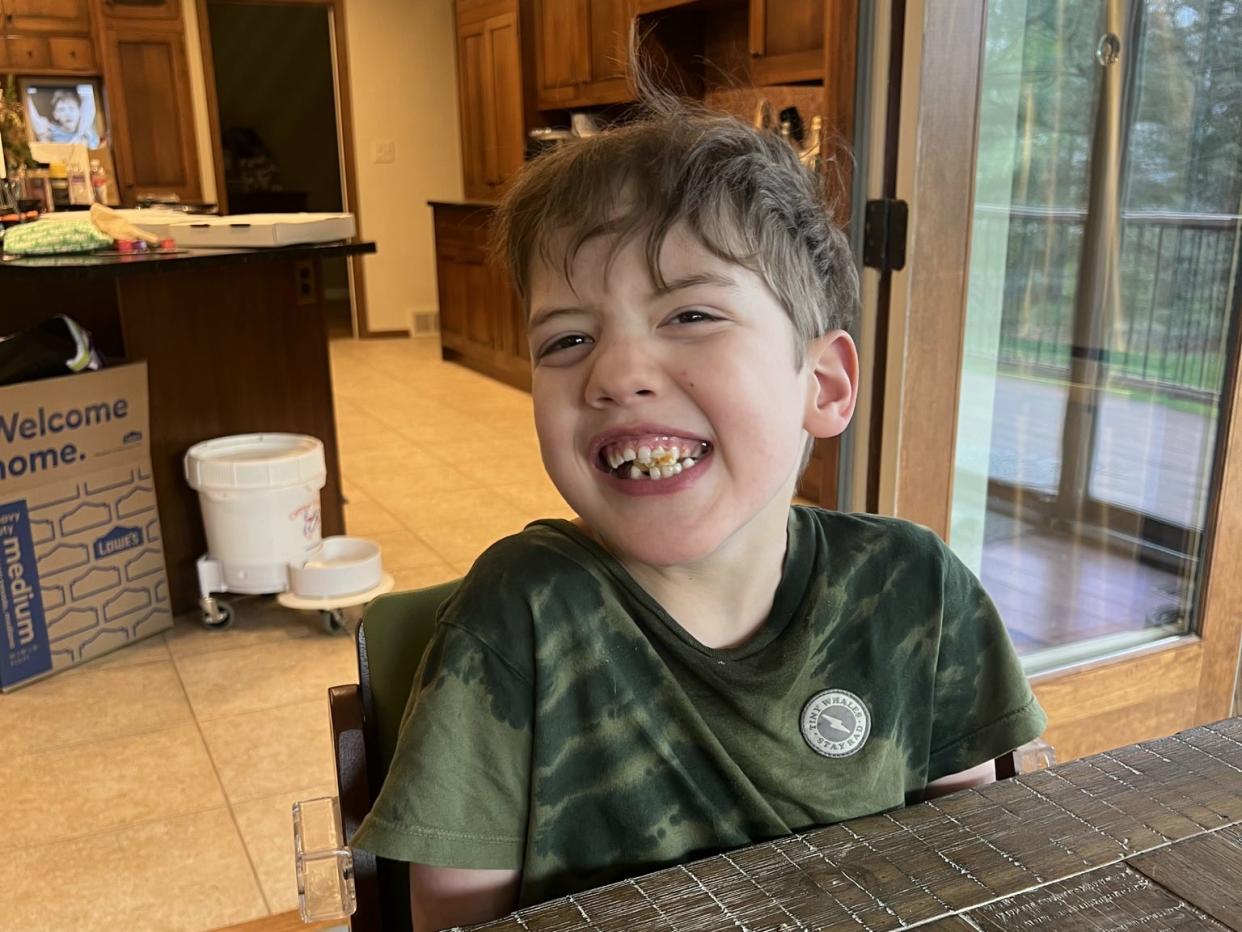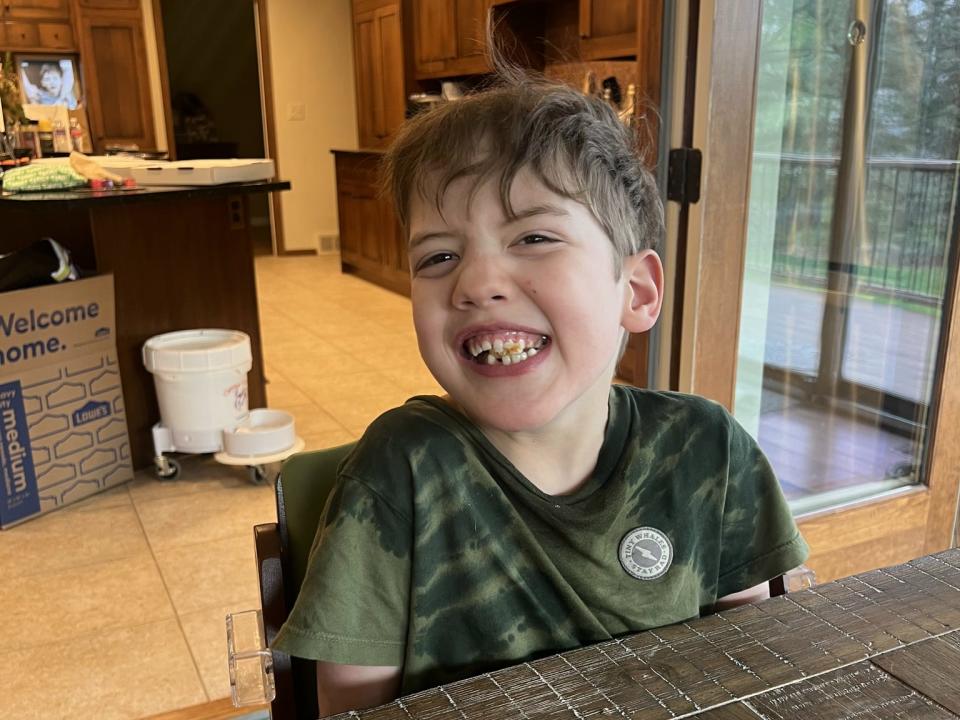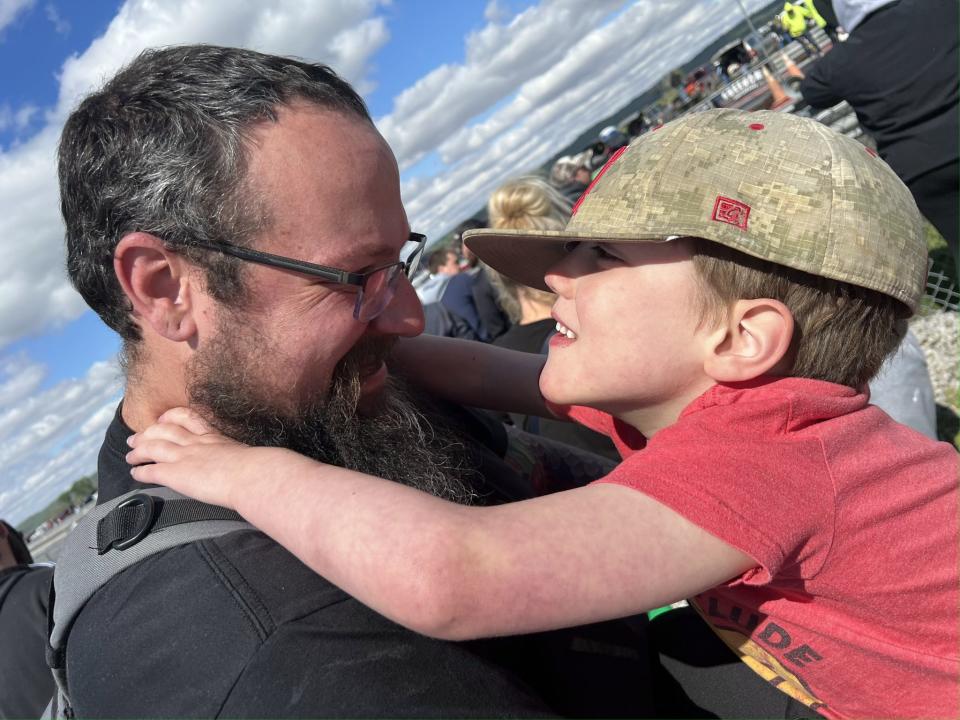My son had seizures every day, and we worried about his future. A brain implant changed his life.

- Oops!Something went wrong.Please try again later.
Liz Bronson's son, Teddy, has Lennox-Gastaut syndrome, a severe type of epilepsy.
Teddy was the youngest person in the country to get a brain implant to help.
For the first time, at the age of 6, he's able to walk and talk.
This as-told-to essay is based on a conversation with Liz Bronson. It has been edited for length and clarity.
My six-year-old son Teddy recently said his own name for the first time. When you're pregnant and choosing a name, you imagine all the ways your child will use it, how they'll introduce themselves to friends and make social connections. For a long time after Teddy was born I didn't know if he'd ever use his name, so hearing him speak it was life-altering.
Although he is my first, I knew soon after his birth that something wasn't quite right. I'm a nurse practitioner in the neonatal intensive care unit at Children's Nebraska, the pediatric hospital near our home in Omaha, so I knew about babies. Teddy didn't smile at us or reach for objects, but at first, his doctors weren't concerned that he wasn't meeting milestones.
Around his first birthday, his doctor referred us to a neurologist. While we were waiting for the appointment, he had his first seizure — an absolutely terrifying event that landed us in the emergency room.
When we finally saw the specialist, Teddy had a 23-hour electroencephalogram (EEG), a test that detects electrical activity in the brain and can help diagnose epilepsy. The doctor saw the results and said, "His brain is really busy." He didn't mean it in a good way. It was as if the doctor could see that his symptoms were about to really kick off.

We tried to start medications early, but nothing worked
Teddy was diagnosed with Lennox-Gastaut syndrome, a severe form of epilepsy. He was put on medication, but his seizures just became more intense and frequent. Medications did little to help. From the time he was about a year and a half until he was 3, he was having more seizures than we could count every day.
Every time he fell asleep or woke up, he'd have a cluster of seizures. His head would droop, and his body would fall forward. In most cases, this would have been a reason for a trip to the ER, but if we went to the hospital every time Teddy had a seizure, we would have been living there.
Instead, we worked closely with our doctors at Children's Nebraska, which is a level 4 epilepsy center, the highest designation available. We also consulted with epilepsy doctors around the country. We tried so many medications, but none worked. We were constantly weaning Teddy onto or off of new medicines.
Looking back, we were in a fight-or-flight response. But we were also learning to listen to our intuition as Teddy's parents.
Doctors told us to act fast
When Teddy was three, I listened to a podcast where a doctor talked about surgical management for epilepsy. Despite the fact that Teddy didn't respond to medications, we had never been offered surgical options, which are seen as a last resort.
I reached out to the doctor I'd heard speak on the podcast and then to another specialist. Both agreed that a surgical implant might help. It wouldn't stop his seizures completely, but it could vastly reduce them. That meant his brain would have a chance to grow and develop, just like other preschoolers.
One of the doctors said something that really resonated with me: "You have a kid whose brain is on fire. My recommendation is to act fast."

I knew if we didn't do something, I worried Teddy would die
I knew the doctor was right. Yet the treatment we were considering, a brain implant called responsive neurostimulation (RNS), was only approved for adults.
Because I'm a nurse practitioner, I understand that medications are often used off-label, meaning not in the way that they're formally approved for. I use off-label medications in the NICU all the time, and they help my patients. So, I was somewhat comfortable using the RNS treatment off-label, with the doctors' recommendation.
Even more important was my mother's intuition. I just knew that if we didn't do something drastic to help Teddy, he would die. I had seen other families whose children had died, and I worried that was the road we were on, even if doctors weren't explicitly saying that. My husband and I decided to try the surgery. Years later, people still can't believe we took that risk, but we felt that not taking it would have meant giving up on Teddy, and there was no way I could give up on my son.
Teddy is thriving, and he's changed how I approach my work
The process wasn't smooth. Teddy's initial surgery was in Los Angeles. When his incision became infected, doctors needed to remove a large part of the implant. Later, he was reimplanted at Children's Nebraska. At only 3 years old, he was the youngest child in the country to have an RNS implant.
It's been two years since Teddy had his second implantation surgery, and the results have been amazing. Before surgery, his preschool teacher needed to give him rescue medication to stop seizures three times a week. This year, he's only had one seizure at school.
Teddy is in kindergarten, and he is thriving. He uses a walker to get around school and recently said "Hello" to his teacher, who just about fell out of his chair with surprise. Most importantly, he's bonding with his fellow students. Just this week, a neighbor in his grade brought over birthday cupcakes to share with him.
Raising Teddy has changed how I talk with NICU families facing serious medical diagnoses. Before, I was focused on whether kids could achieve certain activities of daily life. Now, I understand that families just love their children. Disability isn't a negative word. These kids are amazing, vibrant members of our families and society, and we're so lucky to have them.
Read the original article on Business Insider

